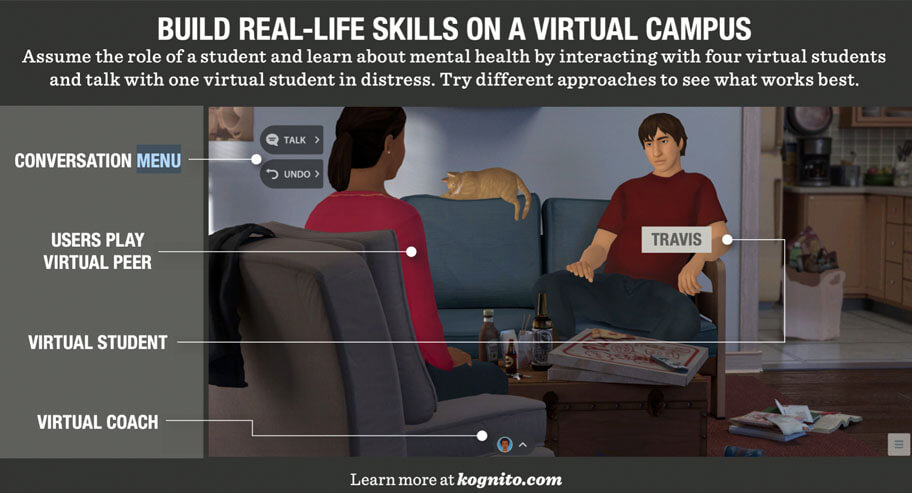Confronting the Campus Mental Health Crisis with HEERF III Funding
Higher education institutions receiving HEERF III funding have an opportunity to invest in mental health gatekeeper training to support student and faculty wellbeing.
The Higher Education Emergency Relief Fund III (HEERF III), under the American Rescue Plan (ARP), Public Law 117-2, was signed into law on March 11, 2021, providing $39.6 billion in support to higher education institutions to help ensure learning continues during the COVID-19 pandemic. This is in addition to what was provided by HEERF II as well as the CARES Act.
The emotional and social challenges of the pandemic have brought mental health concerns even more to the forefront; higher ed leaders reported that student mental health was their most pressing concern.
Using HEERF III Funds to Support Mental Health
One in five college students say their mental health has significantly worsened under COVID-19, and 80% report that the pandemic has negatively impacted their mental health, according to a survey by Active Minds.
Despite colleges’ best efforts to shift to virtual services, more than half of students say that they would not know where to go if they or someone they knew needed professional mental health services right away.
The U.S. Department of Education outlines that HEERF III funding may be used “to support additional academic or mental health support systems that will help students to overcome additional barriers that have arisen as a result of coronavirus that may otherwise prevent them from completing their education.”
HEERF III funding can also assist institutions in “supporting coping and resilience for students” as part of their efforts to prevent and mitigate the spread of COVID-19.
Students need to know where to go for support, when to go, and how to help their peers in distress. They also need to build coping and resiliency skills to help them navigate around or through crises.
During the pandemic, students have relied on their friends and family more than anyone else, according to a survey of over 2,000 students.
!function(e,i,n,s){var t="InfogramEmbeds",d=e.getElementsByTagName("script")[0];if(window[t]&&window[t].initialized)window[t].process&&window[t].process();else if(!e.getElementById(n)){var o=e.createElement("script");o.async=1,o.id=n,o.src="https://e.infogram.com/js/dist/embed-loader-min.js",d.parentNode.insertBefore(o,d)}}(document,0,"infogram-async");
Source: Inside Higher Ed / College Pulse survey of 2,002 college students
Campus mental health centers play a critical role, but staff and peers are the ones having daily interactions that mental health professionals don’t see. They can spot warning signs in themselves and others if they know what to look for, and can have meaningful conversations if they know how to approach them.
By training students, campus leaders, and educators in mental health topics — recognizing warning signs, reaching out to at-risk students/peers, and developing coping and resiliency skills — colleges can foster a supportive campus community where everyone looks out for themselves and one another.
Kognito’s At-Risk for College Students has been proven to lead to actual behavior change. Learners who complete the simulation exhibit help-seeking behavior and make more referrals to at-risk peers who may need support. In the 40-minute simulation, students learn:
- Positive coping strategies
- Signs of distress
- Effective ways to communicate concerns
- How to take action to find additional support
This interactive learning experience is part of the At-Risk suite of simulations, which educates faculty, staff, and students about mental health and suicide prevention. One interactive learning experience was created for faculty and staff, and one for college students — each addressing issues they may commonly see and then allowing them to practice responding.
The simulations can be customized with campus-specific resources, so learners will practice how to talk to someone in distress, as well as where to refer them for further support.

For institutions who are committed to student and faculty wellbeing, but budget constraints were previously a hurdle in accessing Kognito’s powerful learning experience, HEERF III funding can be used to bring the power of simulation to their campus mental health efforts.
Take a Demo and Learn More
If you’re receiving HEERF III funding and would like to invest in your campus community’s wellbeing, learn more about our simulation experiences at Kognito.com. Or better yet, take a demo to see the power of simulation in action.